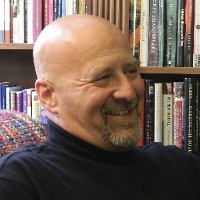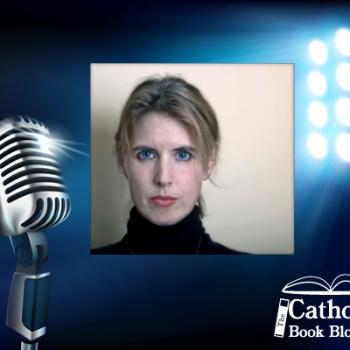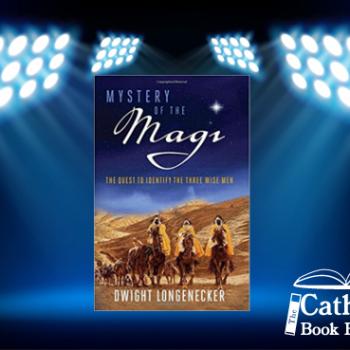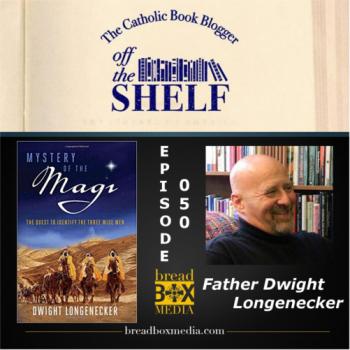PETE: You have said Romance of Religion took you some 10 years to complete. Why so long and can you take us through the writing process involved?
FATHER DWIGHT LONGENECKER: My writing process is usually pretty quick. I have an idea, then an outline, then I fulfill the outline. This time I got started, then I was interrupted with other life events and other writing projects. I was also unclear at the outline stage where exactly the book was going. As I began to do more work on myth and stories everything began to come into focus more. After I was at the half way point I got bogged down, then after re-thinking, the rest of the outline came together and from then on it was clear sailing. Another part of the writing process for me is the Chestertonian aspect. Many people have observed the Chestertonian style. I realize that writing like Chesterton is considered by some to be either a mistake or bad taste or both. I was willing to take the risk for a real reason. The point of the book is to stand things on their head and help people see religion in a fresh way. One of the ways to do this is to use fresh imagery, fresh language and unexpected metaphors and a surprising linguistic style. I have deliberately used this kind of style because it helps to turn things upside down and bring fresh perspectives. For example, when I am writing about some potentially dull religious topic, by searching for rhyme, alliteration or a fresh comparison or metaphor I am forced to see the subject from a new perspective and as I do, this comes into the writing style and helps the reader to see things in a fresh way.
PETE: What was your inspiration for writing this book? Why this topic now?
FATHER DWIGHT LONGENECKER: I am driven by several factors. First of all, I am weary of religion being restricted to a set of rules and a set of doctrines. This is the perpetual problem of religion–that we codify and reduce what should be an adventure or a love affair to a set of policy guidelines. I wanted to stand that on its head. Secondly, I am annoyed by some of the attacks on religion by those who know very little about both literature and religion. Shallow atheists dismiss religion as being “myth” while fundamentalists insist on defending the “historical truth” of the Bible. In fact the glory of the Sacred text is that it is historical and mythical at the same time. That is the other driving inspiration of the book. The third inspiration is my passion for sharing the faith story. Our stories are the way we evangelize, so by re-charging the stories I hope to re-charge the faith. The fourth has been a desire to reach out to non Catholic Christians and expand my audience. The book is published by Thomas Nelson–a Protestant publishing house so I am pleased to be reaching out and sharing with non Catholics.
PETE: The imagery you used throughout the book was amazing, warriors, lovers, battle, etc. Where did you develop this idea?
FATHER DWIGHT LONGENECKER: I’m glad you enjoyed it. I can’t claim originality. These characters are the stock characters of all the stories we humans tell. Time and again in every culture we continue in many different ways to tell adventures stories, love stories, stories of the battle between good and evil. This is the stuff of human life and therefore it is the reality of religion. When we reduce religion to doctrines and dogmas rules and regulations, we emasculate the great romance. I hope no one will get me wrong. We need the doctrines, dogmas, rules and regulations, but they are the map for the journey. They’re not the journey. They are the music theory and the sheet music on the page. They are not the music.
These mythic characters are important because as we experience the story we learn about life. We identify with the main character and go on the journey with them. When they face difficulties we share them. When they face moral choices we have to make the choice with them. When they face spiritual decisions we come face to face with the spiritual dimension. All of this works within us below the level of explication for most people. This is the level where our religion should also affect us. Therefore, if we limit religion to rules and dogma and a set of principles for being nice people we are not allowing religion to really get down to the depths of who we are, and we do not allow religion to transform us the way it is supposed to.
PETE: What do you hope readers take away from this book?
FATHER DWIGHT LONGENECKER: I hope they will be inspired by the rollicking style and the happy warrior language to embark on their own heroic adventure of faith. Even if their step forward is minimal–that they will see their Christian life as a great adventure or nothing at all. I also hope they will learn more about the Christian faith, how literature and culture fit with the Christian vocation, and how to take a few risks for God.
PETE: You mention CS Lewis and J.R.R. Tolkien many times through this book. What influence have they had on you as Christian and in your conversion to Catholicism?
FATHER DWIGHT LONGENECKER: C.S. Lewis enabled me to embrace an intelligent and intelligible form of Christianity without sacrificing orthodoxy. Unfortunately many who believe in historic Christianity take pride in a certain anti-intellectualism. They are countered by the ‘smart’ people who cast aside historic Christianity as antique and archaic. Lewis shows that a belief in historic Christianity can be reasonable, witty, educated and very smart. J.R.R.Tolkien’s influence is deeper and wider. The influence of his imagination and mythic qualities permeate everything in a deeper but more inarticulate way. This is because of the nature of his work. The Lord of the Rings is a powerfully mythic work. By “myth” I mean that it incarnates truth in such a complete way that it cannot be articulated very well. Instead we experience the truth as we experience the story. Tolkien works like that, and therefore his imagination and method influences me in a very profound, but less easily explained way.
PETE: Time for my signature ending question. This is a blog about books. What is currently on your bookshelf to read?
FATHER DWIGHT LONGENECKER: I always have a good number of books to review. I’m reading a collection of Pope Francis’ writings, Trent Horn’s book on answering atheists, Edward Sri’s Walking With Mary and I’ve got Dean Koontz’ latest on my Kindle reader. I also try to read Dante’s Commedia during Lent each year.
Other titles by Father Dwight Longenecker
Catholicism Pure and Simple
The Quest for the Creed: What the Apostles Really Believed, and Why It Matters












